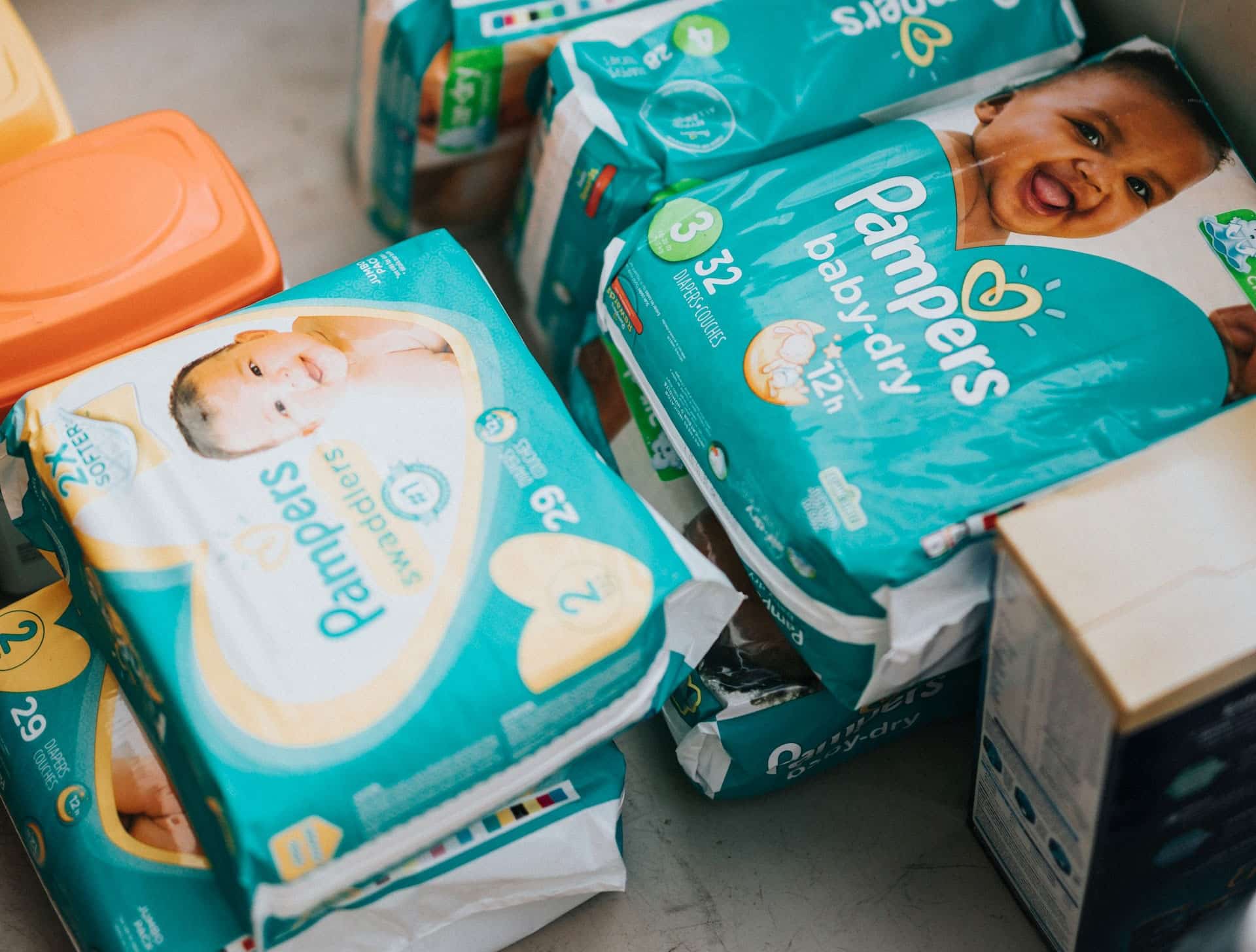Beyond Meat is a food company that offers plant-based substitutes for meat. The company is based in El Segundo, California, and was founded in 2009 by Ethan Brown. Its plant-based meats emulate beef, chicken, meatball, pork, and sausage.
Over the years, the company has expanded across the US, Canada, and the UK. In 2019, Beyond Meat went public, and its shares soared 163%. The IPO increased Ethan Brown’s worth to $400 million by 2020. [1]
In 2021, Beyond Meats opened a production facility in Shanghai to expand into China. It has a market value of $8.3 billion, around 470 employees, and 28,000 distribution centers in the US.
The company also signed partnerships with McDonald’s, Tesco, KFC, Pizza Hut, and PepsiCo to sell its products in more than 80 countries globally.
Since going public, Beyond Meats’ revenue has been increasing rapidly and soared 141% in the first half of 2020. It dominates the market, thanks to its tasty vegan burgers, chicken strips, and sausages. However, several competitors and alternatives have emerged in the recent past and threaten Beyond Meats’ market share. [2]
Here is an in-depth analysis of top Beyond Meats’competitors and alternatives:
1. Impossible Foods
Year founded: 2011
Headquarter: Redwood City, California
Impossible Foods produces “bleeding” burgers and plant-based alternatives. It has around 550 employees and generated $130.1 million in revenues for FY 2019. This vegan company is the closest and most comparable competitor to Beyond Meat. In 2016, it produced its signature Impossible Burger. Like Beyond Meat, Impossible Foods also offers plant-based pork and sausages.
The company develops its products using genetically engineered heme extracted from protein soy. This ingredient is what sets its products apart from Beyond Meat. In 2020, the Center for Food Safety sued Impossible Foods for using unhealthy heme. FDA’s testing proved that Impossible Foods’ heme is safe for human consumption in May 2021. Impossible Foods’ plant-based options offer an alternative to Beyond Meat’s products. It is the top Beyond Meat competitor. [3]
2. Kellog’s
Year founded: 1906
Headquarter: Battle Creek, Michigan
Kellogg’s is a food manufacturing company that offers popular brands like Pringles, Cheez-It, Frosted Flakes, Krave, and Corn Flakes. The company has around 31,000 employees and operates in more than 180 countries globally.
Kellogg’s also owns Incogmeato and MorningStar Farms, a leading producer of plant-based breakfast meat products and vegetable burgers in the US.
In 2020, Kellogg’s generated $13.8 billion from snacks and convenience foods and $400 million from plant-based products. MorningStar Farms and Incogmeato are driving Kellogg’s growth in the frozen foods business in 2021. Its plant-based burger patties, nuggets, and tenders are perfect alternatives to Beyond Meat’s products. Kellogg’s is a top Beyond Meat competitor. [4]
3. Cargill
Year founded: 1865
Headquarter: Minnetonka, Minnesota
Cargill is a family-owned business that purchases and distributes farm products, including grains and beef. It produces ingredients like glucose syrup, vegetable oils, and fats for processed foods. The commodity superpower has over 166,000 employees and operates in 66 countries globally. In 2021, six Malians filed a lawsuit against Cargill for child labor. Although the US Supreme Court sided with Cargill, the case tainted its reputation. [5]
From May 2020 to February 2021, the company made almost $4.3 billion in net income. For fiscal 2021 ended in May, Cargill made $6.3 billion in profits. It is the most profitable year ever in its 156-year history. Cargill’s ground beef and animal proteins compete against Beyond Meat’s products. This giant company is one of the most experienced competitors for Beyond Meat. [6]
4. Nestle
Year founded: 1866
Headquarter: Vevey, Switzerland
Nestlé is the world’s largest food company and produces baby food, drink condiments, ice cream, cereals, soft drinks, and pet products. It has more than 300,000 employees and owns popular brands like Milo, Nescafe, Peptamen, Perrier, S. Pellegrino, and Aqua Panna. For fiscal 2020, the Swiss food group’s annual revenue declined by 8.9% to 94.34 billion from $103.54 billion in 2019. As a result, its net profits dropped 3% to $13.65 billion.
Nestlé offers plant-based products, which compete against Beyond Meat’s offerings. In 2017, the company acquired Sweet Earth to deliver its plant-based products to American consumers. With Sweet Earth, Nestlé can now compete for Beyond Meat’s market share in its backyard. In 2021, Nestlé will focus on growth through acquisitions. The company has the resources to acquire one of Beyond Meat’s top competitors and increase its advantage. [7]
5. Hormel Foods
Year founded: 1891
Headquarter: Austin, Minnesota
Hormel Foods is a global branded food company and a member of the S&P 500 Index. It has over 20,000 employees and owns more than 30 brands, including SKIPPY, SPAM, Hormel Natural Choice, Applegate, Justin’s, and Columbus. In 2020, the company generated around $9 billion in revenues from more than 80 countries worldwide.
In 2019, Hormel Foods introduced its Happy Little Plants brand that offers plant-based meats. It now competes with Beyond Meat in the plant-based meats market. In the first half of 2021, the company’s foodservice sales surged 28% to $5.1 billion and earned $450 million in profits. It is on track to hit $10.8 billion in revenue and the $1 billion mark in net income. Hormel Foods’ product variety and over 120 years of experience give it an edge over Beyond Meat. [8]
6. Quorn
Year founded: 1983
Headquarter: North Yorkshire, UK
Quorn offers meat substitutes derived from fungus. Its ‘Comforting Fillers’ include protein-based mince, chicken nuggets, burgers, sausages, and fish. Quorn introduced its products in the UK market in 1993 and expanded to North America in 2002. It has around 639 employees globally and generated $317 million in annual revenues for fiscal 2020.
In 2021, Quorn unveiled a multimillion-pound marketing push to tackle rising carbon emissions. The campaign promotes its products as an eco-friendly option. “2021 is the time for Quorn,” said Quorn Director Gill Riley. Quorn’s experience and extensive product variety make it a formidable competitor for Beyond Meat. [9]
7. Eat JUST
Year founded: 2011
Headquarter: San Francisco, California
Eat JUST is a food company that offers plant-based eggs and “no-kill” meat products. It was founded as Hampton Creek and rebranded as Eat JUST in 2016 after facing criticisms for inflating its sales figures. The company acquired Just Egg and expanded into the cultured meat market. In 2020, Eat JUST generated around $90 in revenues and had 170 employees.
Eat JUST was the first company globally to sell no-kill meats. Unlike Beyond Meat’s plant-based meats, Eat JUST’s no-kill products contain real meat grown from cells of animals. Eat JUST recently raised $370 million to fund its lab-grown fillets. It is valued at $2 billion and is expected to go public in 2021 or 2022. Its nutritious no-kill meats and innovative offerings make it one of the top competitors for Beyond Meat. [10]
8. Oatly
Year founded: 1994
Headquarter: Malmo, Sweden
Oatly is the world’s largest oat milk company. This Swedish vegan food brand produces plant-based dairy product alternatives from oats. Oatly has more than 25 years in the sector and sells vegan products, including milk, ice cream, and yogurt. It has around 200 employees and offers its products in 60,000 retail locations and more than 30,000 coffee shops worldwide. The Swedish brand made $421.4 million in annual revenue in 2020, more than double its 2019 earnings.
In May 2021, Oatly went public in a $1.4 billion IPO and saw its shares surge 30%. Oatly is now valued at $13 billion. It focuses on plant-based dairy products, while Beyond Meat produces plant-based meat alternatives. The popularity of oat milk makes Oatly one of the top competitors for Beyond Meat. [11]
9. Very Good Food Company (VGF)
Year founded: 2017
Headquarter: Victoria, British Columbia, Canada
The Very Good Food Company is an emerging plant-based food technology company. It produces plant-based products under The Very Good Butchers brand. The company generated $4.6 million in revenues in 2020, a 364% rise from $1 million in fiscal 2019. In June 2020, VGF went public on the Canadian Securities Exchange (CSE) and saw an 800% increase in its stock value. It recently acquired The Cultured Nut to expand into the plant-based cheese market.
In June 2021, VGF partnered with Copper Branch to sell its products in the latter’s stores across Canada. VGF also acquired Lloyd-James Marketing Group for $1 million and partnered with Fresh Prep, marking its entry into the foodservice and meal kit space. Lloyd-James will help VGF scale its retail network to over 2,000 in 2021. VGF’s strategic acquisitions and partnerships increase its competitive edge over Beyond Meat. [12]
10. Perfect Day
Year founded: 2014
Headquarter: Berkeley, California
Perfect Day produces animal-free dairy proteins, including casein and whey. It replicates the genetic code that cows use to make the protein in bioreactors with microorganisms. Perfect Day is the first company to use this innovative process to produce dairy proteins. For its efforts, Perfect Day was awarded the Fast Company’s 2021 World-Changing Ideas Award. It offers ice cream that smells, feels, and tastes like traditional ice cream.
Perfect Day is on track to deliver animal-free cheese and yogurt to market in 2021. Plant-based products, like Beyond Meat’s offering, don’t taste like real meat. With Perfect Day’s approach, consumers can enjoy authentic dairy tastes and textures in their products. But with 60 employees and a $15 million annual turnover, Perfect Day still lags far behind Beyond Meat. [13]
11. Miyoko’s Creamery
Year founded: 2014
Headquarter: Sonoma, California
Formerly Miyoko’s Kitchen, Miyoko’s Creamery is a food producer specializing in dairy-free products made from cashew nuts, oats, and legumes. It uses traditional cheese-making techniques to produce alternatives to butter, cream cheese, and mozzarella. Miyoko’s Creamery operates in the US, Canada, and Australia. It has raised $23 million, including $11 million in 2019 from celebrities like Ellen DeGeneres and Portia de Rossi.
In 2020, Miyoko’s Creamery doubled its annual revenue to more than $30 million. To cater to the ever-growing demand, the company doubled its employees from 85 in 2019 to 170 in 2020. “The demand for our products has been at an all-time high,” said founder Miyoko Schinner. Its dairy-free alternatives are available in more than 20,000 stores, including Walmart and Target. Miyoko’s Creamery is rising quickly on Beyond Meat’s list of top competitors. [14]
12. Upside Foods
Year founded: 2015
Headquarter: Berkeley, California
Formerly Memphis Meats, Upside Foods uses biotechnology to produce cell-based meat products. This food company is a leader in “animal cell culture technology,” with an annual turnover of around $20 million. It employs about 40 people and offers its cultured chicken in a few restaurants in Singapore.
In May 2021, the company changed its name from Memphis Meats to Upside Foods. “Our new name showcases the work we are doing to make eating meat a force for good,” said Upside Foods CEO Uma Valeti. Its cultured chicken is a perfect alternative to Beyond Meat’s plant-based meats. Upside Foods is also on track to deliver lab-grown meatballs to market in 2021, which will increase its competitive edge. It is an emerging top alternative and competitor for Beyond Meat. [15]
13. New Wave Foods
Year founded: 2015
Headquarter: San Francisco, California
New Wave Foods is a food company that produces plant-based shellfish products. The company’s first product is New Wave Shrimp, made from seaweed and plant protein. It mixes plant-based proteins with algae that shrimps eat to create this seafood alternative. New Wave Foods is still a start-up with around 30 employees.
In January 2021, New Wave Foods raised $18 million in its first funding round. “We’re launching a versatile plant-based shrimp that can be used in a wide range of shrimp dishes,” said Michelle Wolf, Co-Founder, and CTO, New Wave Foods. The company’s plant-based shrimp can reduce over-fishing and protect the oceans and entice eco-conscious consumers. This mission increases the company’s competitive edge over Beyond Meat. [16]
14. Finless Foods
Year founded: 2017
Headquarter: Emeryville, California
Finless Foods is one of the leading companies in the cell-cultured seafood space. The company is on track to deliver plant-based tuna to the market by 2022. This alternative uses nine whole, plant-based ingredients to recreate the taste and texture of tuna.
Finless Foods raised $3.5 million in seed funding in 2018 and around 5 million total as of 2021. Its plant-based tuna substitutes fish and is an alternative to Beyond Meat’s products. The company offers cultured fish and seeks to build on its experience to compete for market share in the cell-based fish market. However, Finless Foods has not completed regulatory approval for its cell-cultured tuna. [17]
15. Gold & Green Foods
Year founded: 2015
Headquarter: Helsinki, Finland
Gold & Green Foods is a cross-cultural food technology company, which develops and sells delicious and sustainable plant protein foods. It is the first company to produce plant-based meats using oats as the primary ingredient. In 2020, Gold & Green Foods partnered with Sysco to expand into the American market. Within a year, the partnership increased the company’s sales in the United States by over $5 million.
Its oat-balls, patties, and deli oats have a high nutritional profile and can poach some customers from Beyond Meat. However, these products don’t replicate authentic tastes and textures. “We’re not trying to mimic every aspect of the meat,” said Gold & Green Foods CEO Maija Itkonen. [18]
References & more information
- Scipioni, J. (2020, Aug 19). Beyond Meat CEO on early naysayers. CNBC
- Scipioni, J. (2021, Apr 27). Beyond Meat’s CEO hangs posters with critics’ negative comments in his office. CNBC
- Calma, J. (2021, May 3). Impossible Foods clears legal battle over the ingredient that makes its meat bleed. The Verge
- Ellen S. M. (2021, May 7). Kellogg’s MorningStar Farms and Incogmeato brands bolster Q1 2021 sales growth. Food Navigator
- Redaction (2021, June 17). Supreme Court clears Nestlé and Cargill of employing underage Malians. Africa News
- Blas, J. (2021, May 24). Cargill Heads to Record Profit on Booming Agriculture Market. Bloomberg
- FP News (2021, Feb 19). Nestlé to focus its growth on acquisitions in 2021. Food Processing Technology
- Nunes, K. (2021, May 21). Foodservice recovery boosts Hormel Foods. Food Business News
- White, K. (2021, Jan 13). Quorn kicks off 2021 with a marketing push on sustainability. The Grocer
- McCormick, E. (2021, June 16). Eat Just is racing to put ‘no-kill meat’ on your plate. Is it too good to be true? The Guardian
- Axworthy, N. (2021, May 20). Oatly Shares Spike 30 Percent in $1.4 Billion IPO. Veg News
- TVGF (2021, March 16). The Very Good Food Company Announces Strategic Acquisition of Lloyd-James Marketing Group. Veg Economist
- Peters, A. (2021, May 4). This animal-free dairy isn’t plant-based. It’s grown from real cow protein. Fast Company
- Sorvino, C. (2020, Dec 11). Churning out Millions: How the Founder of Miyoko’s Creamery Put Vegan Butter on the Map. Forbes
- Demetrakakes, P. (2021, May 12). Memphis Meats Changes Name, Plans to Roll Out Lab-Grown Chicken This Year. Food Processing
- PR News (2021, Jan 6). New Wave Foods Completes $18 Million Series A Financing as it Focuses on Delivering Plant-Based Shrimp and Sustainable Shellfish Options to Market. PR Newswire
- Watson, E. (2021, June). Cell-cultured seafood pioneer Finless Foods gears up to launch its first product. Food Navigator
- Watson, E. (2020, Oct 16). Pulled Oats, the new trend in plant-based meat? Food Navigator
- Featured Image by Prudence Earl












Add comment